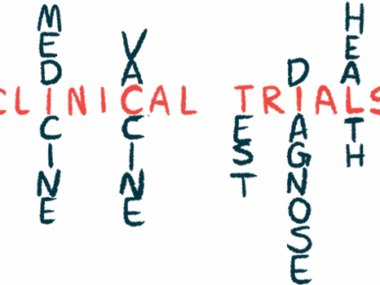Hope is scary, but important in life with Duchenne MD
Considering all the possibilities as my sons enter the HOPE-3 clinical trial
Written by |

I forgot how scary hope can be. There was a time, a few short months, when I realized I was giving up. I accepted that Duchenne muscular dystrophy (DMD) would continue to progress in my sons, and there wasn’t much I could do about it. I hadn’t thrown in the towel just yet, but I was exhausted from fighting this relentless disease.
But now, the meter is tipping. I find myself feeling hopeful again. And I forgot how frightening that can be. What if you let yourself believe something might help, and it doesn’t work out?
My husband, Jason, spent the past week in Denver with our three sons with Duchenne. Max, 18, Rowen, 14, and Charlie, 12, were accepted into the HOPE-3 clinical trial and traveled to Colorado from our home in Nebraska to receive their first infusions.
I’ve felt every emotion over the past few weeks as we prepared for the possibility of all three boys qualifying for the trial and receiving an infusion. But I was surprised that I felt so much hope.
Finding hope in possibilities
As a mom of three sons with DMD, my thoughts are often complicated. I don’t have the luxury of thinking about only one of my boys. Regarding this trial, we won’t know if each boy received the experimental cell therapy or a placebo for 12 months. After that, though, we know all three will get the medicine.
So I find myself wondering: Which of my sons needs the therapy the most?
Of course, I want all of my boys to get the drug. But the chances of all three being randomly selected to get the medicine instead of the placebo are fairly low. But then again, how many women have three sons with DMD? Why couldn’t all three get the drug?
That’s it. That question represents hope, even when I least expected it. Preparation for this trial has been extremely stressful, yet hope found its way in. It feels like a miracle.
My middle son, Rowen, is the weakest of his brothers and has experienced faster disease progression as well. My oldest son, Max, is about to graduate high school and wants to attend college and live on campus. Charlie, my youngest, is still ambulatory.
I would be relieved if Rowen could get the medicine and not a placebo. If any of my sons needs a reprieve from disease progression, it’s Rowen. The fact that I can dream about Rowen getting the help he needs is hope.
If Max could get the medicine now, not in a year, his first year of college might be different. Instead of planning to meet his growing needs as he gets weaker, we could consider the possibility of his condition remaining stable and him living on campus with minimal support. Hope feels real right there.
If Charlie gets the drug, he could continue to walk. For how long? What if forever? That’s hope.
But this is also where hope gets dangerous. What if all three of my sons get a placebo? What if Rowen continues to decline and reaches a level of dependence that prevents him from experiencing all that we dream for him? What if Max grows too weak to live on campus and has to attend a school closer to home that he doesn’t love? What if Charlie falls and breaks his leg and loses ambulation before he can start taking the drug?
Choosing to hover on the side of hope sets you up for devastating heartbreak if you’re wrong. It’s terrifying, and sometimes it feels safer not to hope at all. But a life without hope, especially with a disease as bleak as DMD, is a dark place to be, and I’ve never liked the dark.
I’m happy to find myself again in possession of hope.
Note: Muscular Dystrophy News Today is strictly a news and information website about the disease. It does not provide medical advice, diagnosis, or treatment. This content is not intended to be a substitute for professional medical advice, diagnosis, or treatment. Always seek the advice of your physician or another qualified health provider with any questions you may have regarding a medical condition. Never disregard professional medical advice or delay in seeking it because of something you have read on this website. The opinions expressed in this column are not those of Muscular Dystrophy News or its parent company, Bionews, and are intended to spark discussion about issues pertaining to muscular dystrophy.







Kerstin Werner Cope
Good afternoon,
I agree that hope is a treasurous thing. But it is also the most powerful feeling that helps me deal with my son Reef (17 years old) who suffers from Duchenne.
He has entered the european leg of ENVISION as part of the HOPE trial for elder nonambulatory boys by surprise and received the infusion three weeks ago and is now suffering the the side effects to be expected from this gentherapy.
I also have two healthy daughters Talisa 18 and Alana 19 years old, who unfortunately both are carriers.
I strongly believe hope is everything in this world, no matter if in the end placebo or medication and even if the gentherapy does not work as expected. And it makes it easier for me to keep going, knowing that science is moving forward much faster than previously predicted